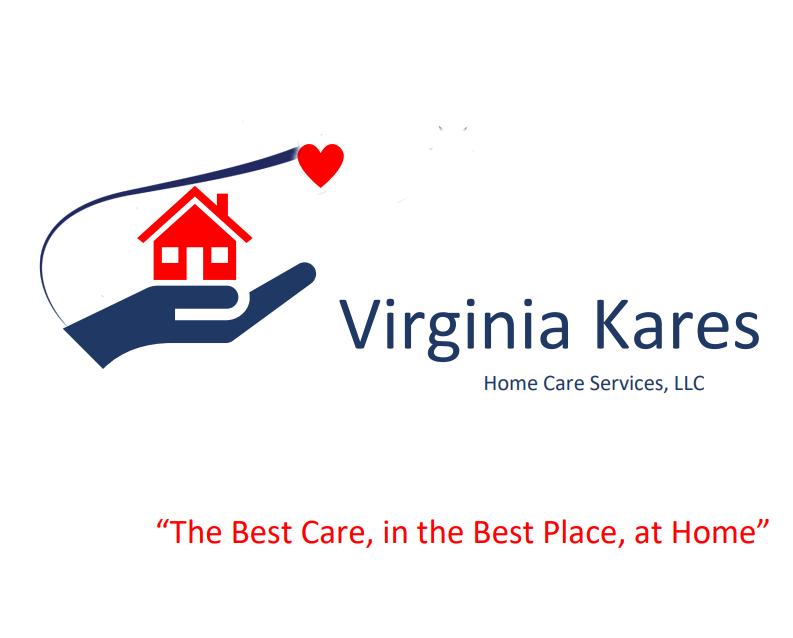
Post-hospitalization Care

If you are having surgery, you may be interested in how Virginia Kares can help you heal faster after you or your loved one gets home. Overall, recovering from surgery is a straightforward process of following the discharge instructions.
Healing quickly requires diligence and effort in caring for the individual, and their body as a whole, after surgery. Virginia Kares Home Care services can send you a skilled aide to help you meet the challenge and keep you on track for a speedy recovery by following simple guidelines:
- Follow Your Doctor’s Instruction: Virginia Kares Home Care can provide a skilled, compassionate person to help encourage you to follow all of the doctor’s instructions, no matter how simple or challenging they seem.
- Keeping your follow-up appointments: On occasion, the doctor may do follow-up blood work, or could be looking for signs of infection, and want to make sure your condition has been treated correctly. You may require adjustments of your medications in the weeks following surgery. Virginia Kares Home Care Services can help you make and keep appointments. Follow up appointments are important even if you’re feeling good about your recovery.
- Prevent Infection: On Occasions your incision can be hard for you to see for monitoring reason. Though Virginia Kares Home Care Services is a non-medical agency; we can be your eyes to see that the healing process is going well. Helping to keep you and your environment clean such as bedding, home, and laundry will help prevent infection and that is one of the most important things you can do in your recovery.
- Inspect Your Incision: Is your incision pink or red? Is there wound drainage and what color is it? Are the stitches or staples intact? These questions are very important and looking at your incision several times a day will help you determine if your surgical site is continuing to heal. This may not be your favorite thing to do, but it is important that someone does it on a regular basis.
- Drink and Eat Properly: Often you don’t feel like eating after having surgery due to nauseated, constipation, or just not being hungry. Staying hydrated and eating a healthy diet after surgery can help promote healing, minimize common complications, and help you get past the unwanted side effects of anesthesia. Virginia Kares Home Care Services can fix you the best meal possible for the time of your recovery. We could run to the store and pick up your groceries and see that you get plenty of fluids and electrolytes, giving you the best recovery possible.
- Cough and Sneeze Carefully: Who knew that coughing and sneezing the way you’ve been doing it your entire life isn’t good enough after some surgeries? It turns out that if you have an abdominal incision, you can do some serious harm to your incision if you cough or sneeze the wrong way. Applying pressure to the incision is essential when coughing, sneezing, or even going to the bathroom. You can do this with your hands, or a pillow if you have one nearby.
- Care for Your Incision the Right Way: Though Virginia Kares is a non-medical agency we can be in the home to support the cleanness of your recovery. Make sure to wash your hands before touching your incision. Believe it or not, most patients try to get their incision a bit too clean. They want to scrub their incision and remove the scabs that form, or they want to use alcohol or peroxide to keep the area free of germs. Unless your surgeon specifically instructs you to do any of those things, a gentle wash with soap and water is more than adequate.
- Know When to Go To the ER: Are your symptoms normal or a sign of an emergency? The general answer is this: If you are seriously concerned you should call your doctor or go to an ER. Virginia Kares Home Care caretakers can monitor what looks normal and address your concerns when deciding whether or not to go to the ER.
- Control Your Pain: Keeping your pain under control is very important after surgery. Some patients hesitate to take their pain medication as prescribed because they fear addiction or other issues. Others feel that taking pain medication is a sign of weakness, or they don’t like how they feel when they take prescription drugs. Virginia Kares can give you medication reminders to keep your pain at bay. It is often easier to control pain if you take the medication regularly, as prescribed. Waiting until the pain is severe and then taking pain medication results in a long wait for the drug to take effect. Good pain control can make it far easier to sleep, which also promotes healing.
- Get Moving: With the support and supervision of Virginia Kares Home Care Skilled aide, we can help you get up and move ! Walking after surgery is one of the most important things you can do after having a procedure. It may seem like a simple thing, but a quick walk every hour or two can help prevent serious complications like deep vein thrombosis (DVT) and pneumonia. Walking can also help prevent one very common and annoying side effect of anesthesia—constipation. Walking is a gentle way to return to physical activity and can help promote a return to regular activities. Talk to your doctor about when you can return to more strenuous activities, such as running and contact sports. Swimming should wait until your wound is completely closed.
A Word From Very well
Recovering from surgery shouldn’t be complicated, but it will take some time and energy along with a willingness to follow the instructions provided by your surgeon. A surprisingly large number of people do not follow those instructions and then wonder why they are having pain, healing slowly, or both. Your healing body needs time to heal and won’t tolerate being rushed, but being smart may lead to shorter recovery and a quick return to your normal activities.
